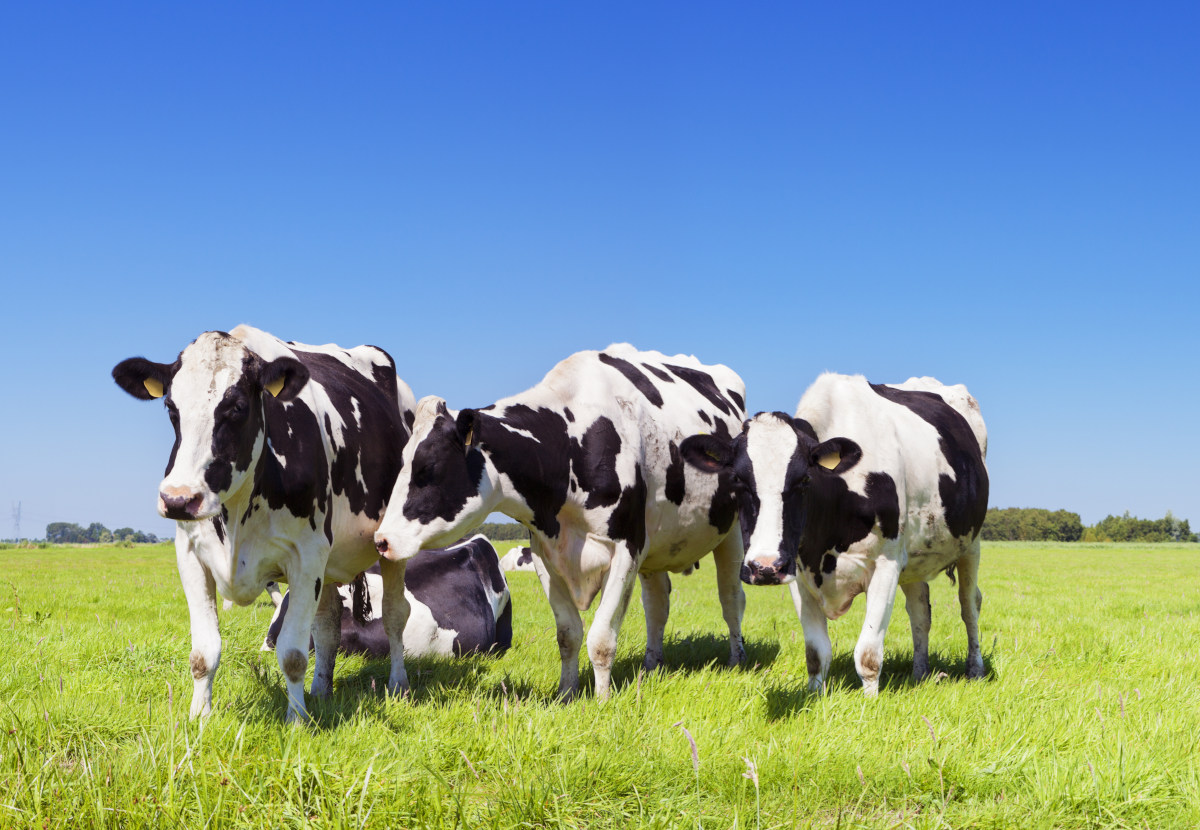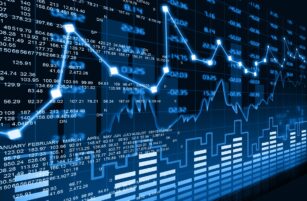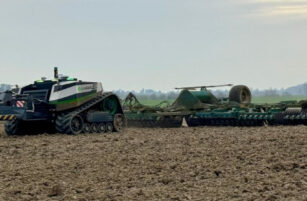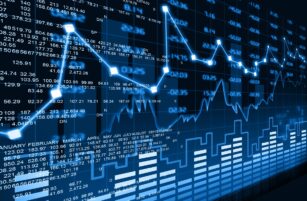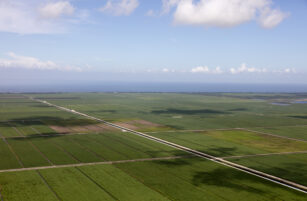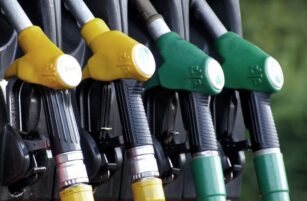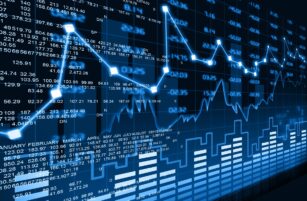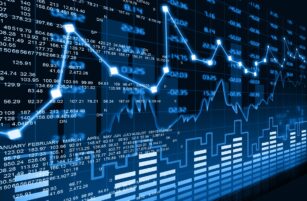Insight Focus
- The Netherlands is one of the world’s largest meat exporters.
- But environmental priorities mean the country is shifting away from its focus on farming.
- Both European and Dutch food security will be impacted by the move.
Despite the Netherlands’ small land mass, it is a major part of the global food supply chain. With the government trying to reduce emissions through a decrease in livestock farming, there are implications both for the country itself and for European food supply.
Netherlands Is a Top Agricultural Exporter
The Netherlands is a very small country on the global scale. As a proportion of total global food production, the country produces very little.
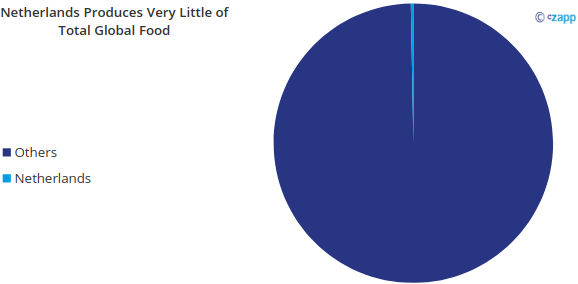
Source: FAOSTAT
However, it is a crucial link in the supply chain because it exports a great deal of agricultural production. Despite the fact it represents just 0.03% of the world’s land mass, it is responsible for 3.5% of the world’s food exports.
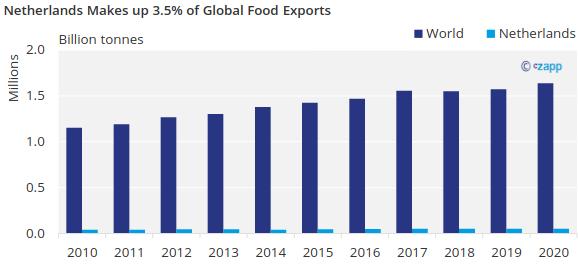
Source: FAOSTAT
The country makes up even more of EU food supply. The Netherlands is responsible for 15% of all food imported within the EU.
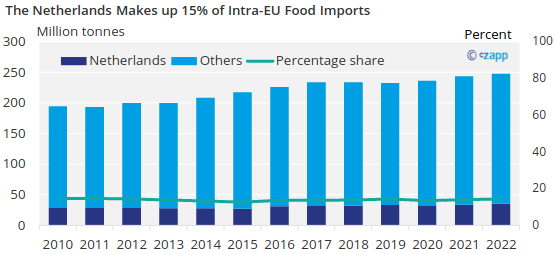
Source: Eurostat
Not only this, but it is a key fertilizer supplier to the EU. This became critical in 2022 when Russia invaded Ukraine and global supply chains were thrown into turmoil.
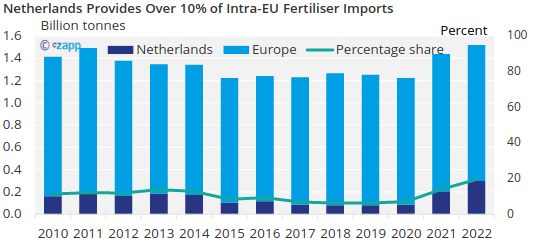
Source: Eurostat
And given the increasing regionalisation of trade, the Netherlands is a crucial component of EU food supply.
Emissions Targets Inconsistent with Production The EU as a whole is promoting decarbonisation among member states. The Farm to Fork policy was rolled out last year and introduced a series of ambitious measures designed to reduce emissions from farming and food production.
The Netherlands’ emissions for agriculture are below the EU27 average.
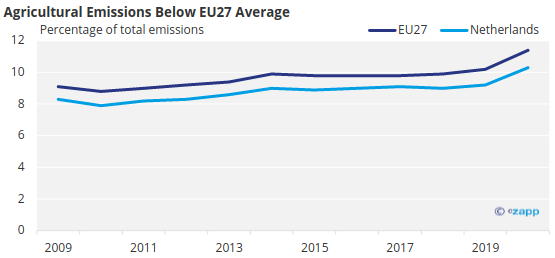
Source: Eurostat
However, it is still one of the highest emitting sectors within the country, alongside transportation, electricity and gas and manufacturing.
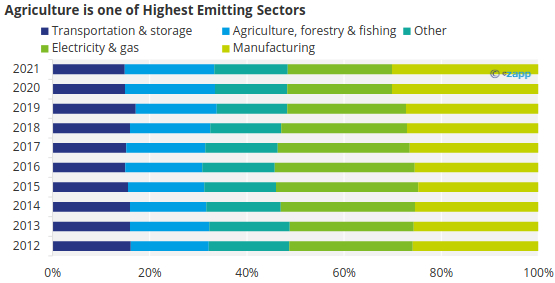
Source: Eurostat
The country has also struggled to reduce agricultural emissions in a meaningful way. While sectors such as real estate and mining have managed to reduce emissions by over 30% since 2012, agricultural emissions have been reduced by just over 1%.
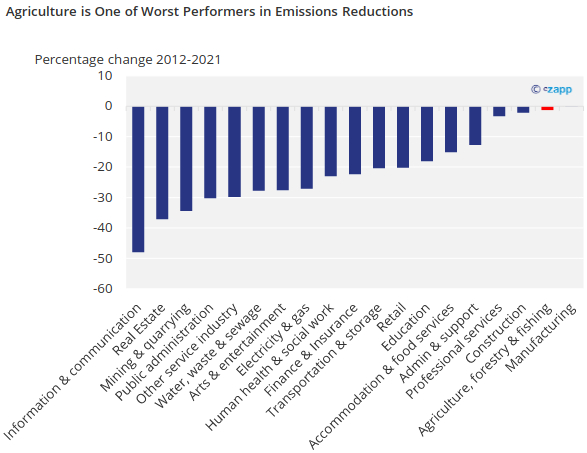
Source: Eurostat
The Dutch government is now focusing on emissions reduction efforts — specifically halving nitrogen emissions by 2030 — and is targeting livestock to meet targets. The Netherlands has a very high density of livestock.
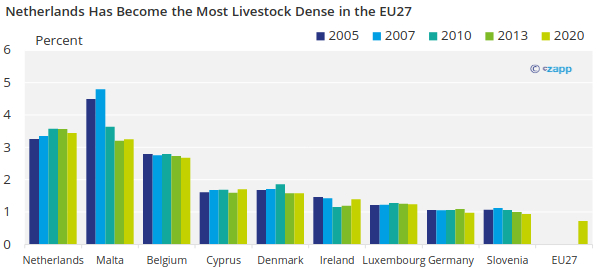
Source: Eurostat
The government now plans to reduce livestock numbers by a third, but the move has prompted outcry from farmers, who have staged protests since mid-2022. The move is likely to have significant economic and geopolitical impacts, both for the Netherlands and for Europe.
What are the Implications for the Netherlands?
Agriculture’s importance to GDP in The Netherlands has waned over the years as the economy has diversified. As of 2021, it contributes about 1.5% to the country’s economy. Although this does not seem like a lot, it represents USD 15.2 billion.
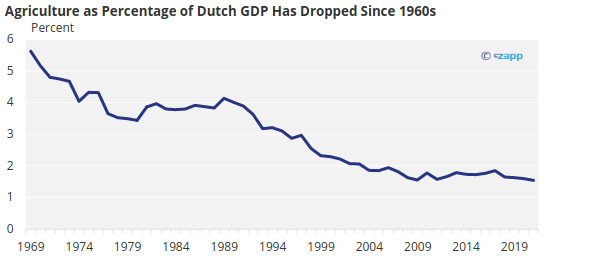
Source: World Bank
Agriculture employs about 200,000 people in The Netherlands.
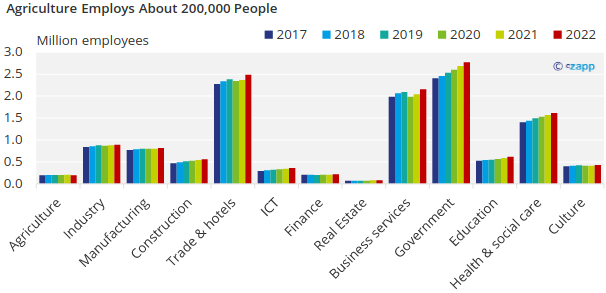
Source: Statistics Netherlands
As of April 2022, the Netherlands produces 3.7 million head of cattle, 1.5 million sheep and goats and over 11 million pigs. Chickens by far account for the majority of animals at over 88 million.
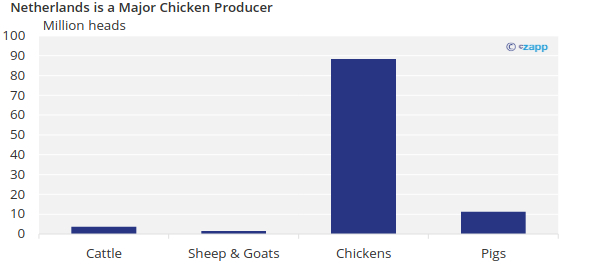
Source: Statistics Netherlands
While The Netherlands’ efforts to reduce farming emissions should be commended, the authorities should also be careful not to swing the pendulum in the other direction and compromise food security. One cautionary tale is that of Sri Lanka, which banned inorganic fertilisers in 2021 in an effort to promote organic farming. But the effort to save the Sri Lankan economy USD 400 million per year ended up costing much more after agricultural productivity dropped significantly.
The country – which was once self-sufficient in rice production – was forced to spend USD 450 million on rice imports. Production of tea, Sri Lanka’s biggest export, fell by 8% and government subsidies were needed to help struggling farmers.
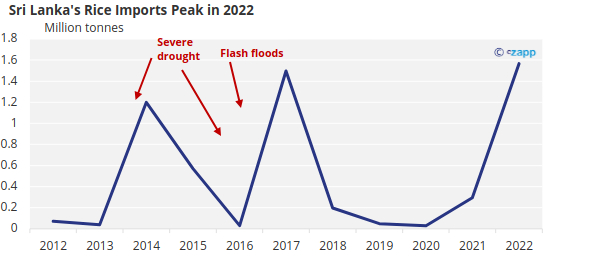
Source: UN Comtrade
What are the Implications for Europe/ROW?
Food protectionism is growing, and trade is becoming increasingly regionalised. Given that The Netherlands is a key provider of EU food supplies, this policy could have impacts outside of just the national scope.
If we consider the amount of meat health guidelines advise us to consume, the world produces far more meat than required. Health guidelines advise consumption of no more than 700g of raw meat per week, equating to 36.4kg per person per year.
We do know that some, especially in the developed world, eat far more meat than recommended. This consumption figure also assumes of course that everyone eats meat, which we know is not true. But these factors balance out to give us an rough idea of global meat consumption.
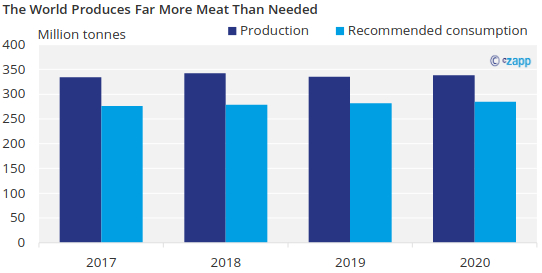
Source: World Bank, FAOSTAT
However, this policy does pose a threat to Europe’s food autonomy. The Netherlands is the bloc’s largest meat exporter.
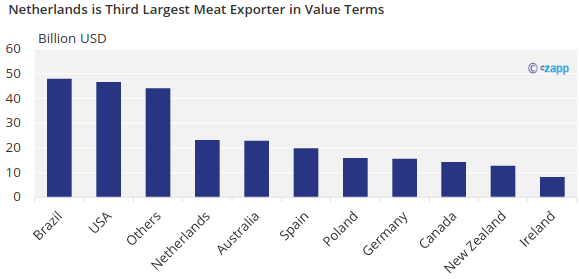
Source: UN Comtrade
Political Opposition Threatens Policy
This month, the results of the Dutch provincial elections dealt a blow to the agricultural policy. The Farmer Citizen Movement – known as BBB – secured 15 out of the 75 seats up for grabs in the senate. This makes it the largest single party in the Parliament’s highest chamber.
The VVD party – headed by Mark Rutte – alongside its fellow coalition parties – took 22 seats, a loss of 10 seats.
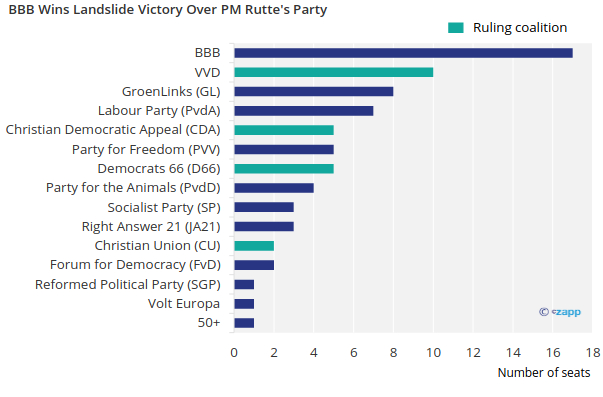
Source: NOS
It is hard to deny that the results are not a direct consequence of the nitrogen policy and the government will likely face strong opposition to any measures it tries to pass going forward.
Concluding Thoughts
- National and regional food production has become one of the most important themes of the 2020s.
- But environmental and sustainability policies are also important to preserve food supply.
- Some lessons can be learned by The Netherlands from the situation in Sri Lanka.
- Any policy that impacts food production must be well thought out, especially in the current global climate.
- While a light touch to policy may be preferred by farmers, environmental targets must be met.
- The Dutch voters have made it clear that they do not support the policy as it stands.
- To ensure the policy works correctly, safeguards should be put in place to ensure neither European food autonomy nor the Dutch economy are adversely impacted.
